This Sunday, December 1, is the first Sunday of Advent, a four week season the Christian community has set aside, climaxing with Christmas Day. Christ Followers are called to reflect and pray, centering our attention on the coming of Christ. I can’t think of any question that will serve our reflections more richly than Jesus…what’s in a name?
What a story, “That which is conceived in her is of the Holy Spirit; she will bear a son, and you shall call his name Jesus, for He will save his people from their sins.” (Matthew 1:20—23 RSV)
No reservation about his name. It had been declared by the prophet, Isaiah, centuries before. The angel had announced it to Mary at the time of her Annunciation: “You will conceive in your womb and bear a son, and you shall call his name Jesus. He will be great, and will be called the Son of the Most High…and of his kingdom there will be no end.” (Luke 1:31-32, 33 RSV) So, the question, what’s in a name?
Get the story clearly in mind. Who is this Christmas person? Why did he come? Have I claimed what he offers me?
William B. Fitzgerald summarized Wesley’s theology of salvation with this fourfold dictum: All people need to be saved from sin, all people can be saved from sin, all people can know they are saved from sin, and all people can be saved to the uttermost. (The Roots of Methodism, London: Epworth, 1903, p. 191-217)
We are in the midst of the Advent season. It’s Christmas time. Let’s stay with the story…at least reflect seriously a bit.
A central figure is Joseph. He is perplexed, deeply perplexed. The woman to whom he is engaged is pregnant and he knows the baby is not his. He is wrestling with what to do. Will he expose her, making her a public example? He can’t do that; he loves her too much. He takes the only course acceptable to his conscience. He decides to divorce her quietly, privately, hoping to cause as little a ripple in the community as possible.
That decision, though it came out of the love and justice of his heart, didn’t set well. He continued to wrestle with it. In the deep midnight watches and wakefulness of his wrenching heart, an angel appeared with the astounding news:
“Do not fear to take Mary your wife, for that which is conceived in her is of the Holy Spirit; she will bear a son, and you shall call his name Jesus, for He will save his people from their sins.” (Matthew 1:20—23 RSV)
Jesus will be his name. It had been declared by the prophet, Isaiah, centuries before. The angel had announced it to Mary at the time of her Annunciation: “You will conceive in your womb and bear a son, and you shall call his name Jesus. He will be great, and will be called the Son of the Most High…and of his kingdom there will be no end.” (Luke 1:31-32, 33 RSV) So, the question, what’s in a name?
“You shall call His name Jesus, for He will save His people from their sins.” That’s it and that is Good News…good news only when we are willing to admit the bad news about ourselves. The bad news is that we are sinners.
So let’s be very specific, name our common bondage and claim our deliverance.
Do you feel burdened down by guilt? Have you started to realize that the guilt may be from unconfessed sins?
Do you feel pain in your heart because there is a severed relationship that needs reconciliation?
Do you feel helpless because you are held in the tenacious grip of a debilitating habit? Alcohol? Drugs? Gambling?
Is your energy being drained because you live too close to the line of moral compromise —cheating in business? Preoccupied with lusts?
Does your pride often put you in the position of thinking more highly of yourself than you ought to think, of looking down your nose at others?
We could go on and on, but you’ll have to do that personally.
Painful though the process of confession and repentance may be, the joy that comes as a result is “unspeakable and full of glory.” For the one whose birthday we are celebrating these days is JESUS. He will save us from our sins.
CELEBRATE JESUS
SAVIOR TO ALL PEOPLE
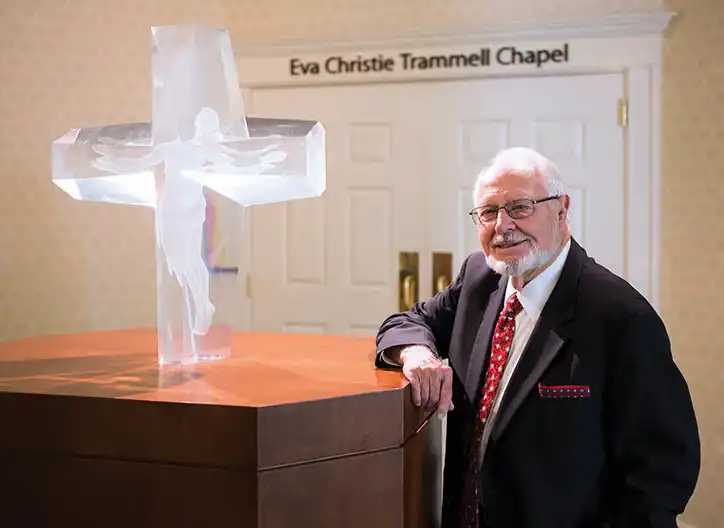





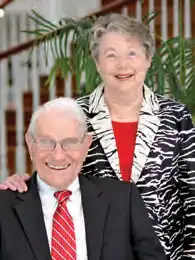
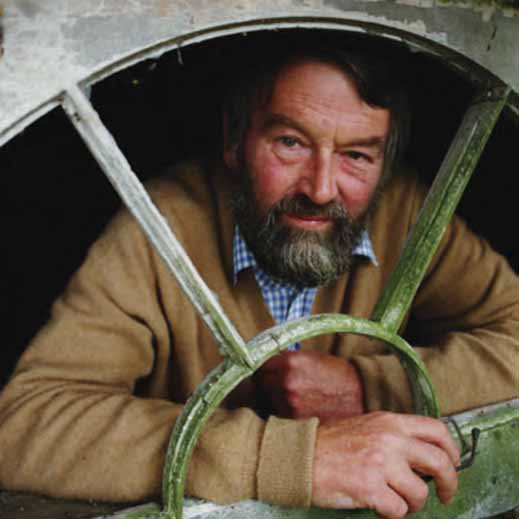










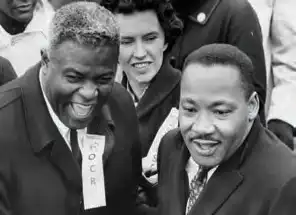



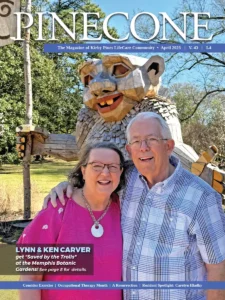

 © 2025 Kirby Pines LifeCare Community. All Rights Reserved |
© 2025 Kirby Pines LifeCare Community. All Rights Reserved | 